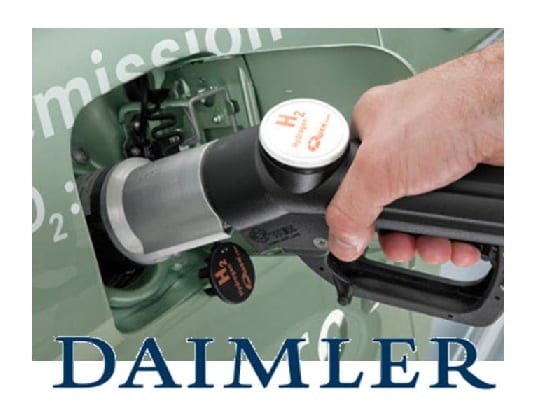Daimler opts to wait to release its fuel cell vehicles
July 24, 2014German automaker will wait until 2017 to debut its clean vehicle powered by hydrogen fuel
Acclaimed German automaker Daimler could have had its first fuel cell vehicle ready for production by now, but the company has opted to wait until 2017 to debut its clean vehicle. In the past, Daimler fought to justify its interest in hydrogen fuel cells, as much of the rest of the auto industry had become enthralled by lithium-ion batteries. The company faced some criticism from consumers over its favor of fuel cells as well, as many people considered these energy systems to be inefficient and unnecessarily expensive.
Partnership leads to the delay of commercialization
According to Herbert Kohler, Daimler’s head of corporate research, the reason why the automaker has not put its fuel cell vehicle into production is largely due to its partnership with Nissan and Ford. All three automakers make use of the same fuel cell components for their own next generation clean vehicles, and they all want to see these vehicles perform well in the market. The partnership is meant to examine ways to make fuel cells less expensive and more efficient, solving some of the problems that these energy systems currently face in the transportation field. As such, the automakers have delayed their launch of fuel cell vehicles until 2017.
Lack of fuel infrastructure makes it difficult to successfully launch fuel cell vehicles
Another issue has to do with the lack of an effective hydrogen fuel infrastructure. Many of the auto industry’s most favored markets currently do not have enough hydrogen fuel stations to support the commercialization of fuel cell vehicles. This makes it difficult for automakers to launch their clean vehicles in these markets with the intend of being met with success.
Automakers want to make fuel cells less expensive
Without a comprehensive infrastructure in place, fuel cell vehicles will have moderate appeal to consumers. The high costs of these energy systems is another detracting feature, and consumers have been eager to voice their disinterest in fuel cells based on their expensive nature alone. Some automakers have been working to address this particular issue and these efforts have delayed the commercialization of fuel cell vehicles to some extent.


 With over 15 years of reporting hydrogen news, we are your premier source for the latest updates and insights in hydrogen and renewable energy.
With over 15 years of reporting hydrogen news, we are your premier source for the latest updates and insights in hydrogen and renewable energy.